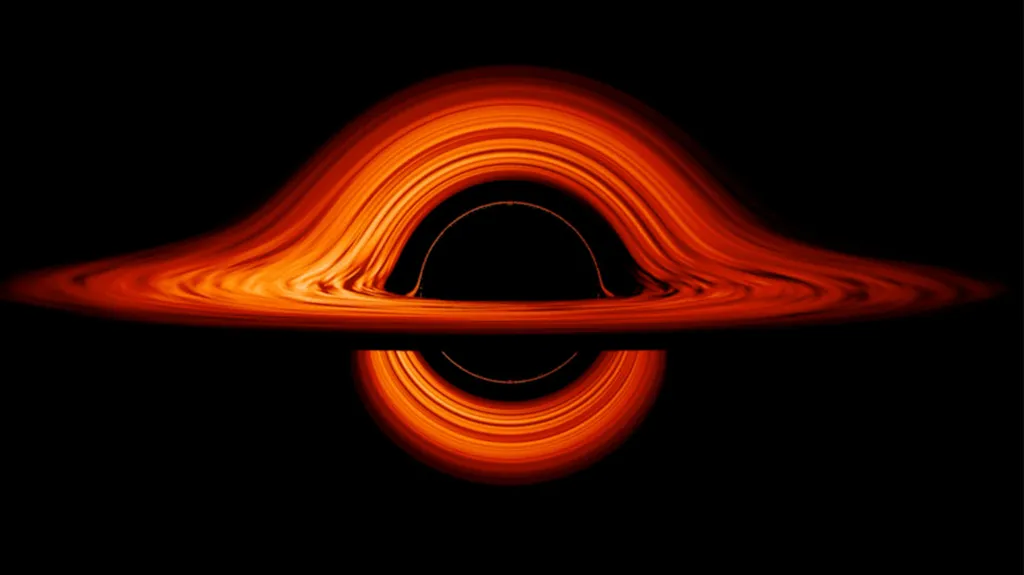zoomacademia.com – Time is supposed to be constant, right? One second here, one second there — same thing. Except it isn’t. Not near a black hole. Around those cosmic monsters, time starts behaving like a drunk on roller skates.
What Even Is a Black Hole?
A black hole forms when a massive star collapses under its own gravity. Imagine packing the mass of several suns into a single point so dense that not even light — the fastest thing in the universe — can escape. That’s why it’s called a “black” hole: it swallows everything, including the evidence of its own existence.
The outer edge is called the event horizon, a “point of no return.” Cross that, and congratulations — you’re toast. Space and time switch roles. Distance becomes meaningless. Time slows down so much it might as well stop.
The Time Dilation Trick
Einstein’s General Theory of Relativity predicted this madness. Gravity doesn’t just pull objects; it bends space and time itself — forming what physicists call spacetime curvature. The stronger the gravity, the slower time flows.
So if you hang out near a black hole (don’t), your clock ticks slower than someone far away. To an outside observer, you’d look frozen. To you, everything else would speed up — galaxies spinning, stars dying, civilizations rising and falling while you’re just chilling by the abyss.
This effect is called gravitational time dilation. It’s not sci-fi; it’s proven. GPS satellites even correct for tiny time dilations caused by Earth’s gravity and speed. Imagine what happens where gravity is billions of times stronger.
The Spaghettification Zone
Get too close, and the difference in gravity between your head and feet becomes so extreme that you’re stretched into a cosmic noodle. Scientists, being poetic creatures, call this “spaghettification.” Romantic, huh?
Black Holes as Time Machines?
Technically, yes — in a suicidal kind of way. Time near a black hole runs slower, so someone orbiting one could experience only a few hours while centuries pass elsewhere. Movies like Interstellar got this pretty right. But it’s a one-way trip; you’re not coming back to brag about it.
Black holes are the universe’s ultimate prank: infinite gravity, zero mercy, and a complete disregard for human logic. They twist time, erase matter, and laugh in the face of physics. Yet, studying them helps scientists understand how spacetime itself works — and maybe, someday, how to bend it without dying










